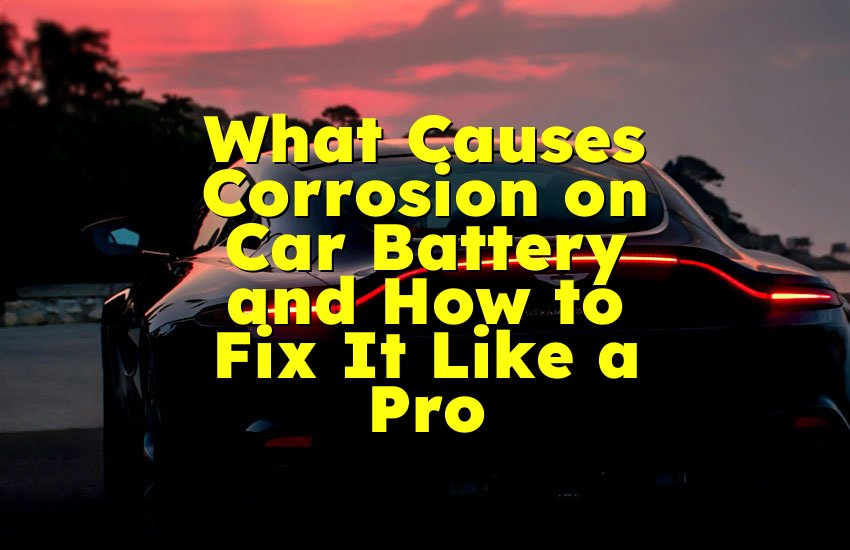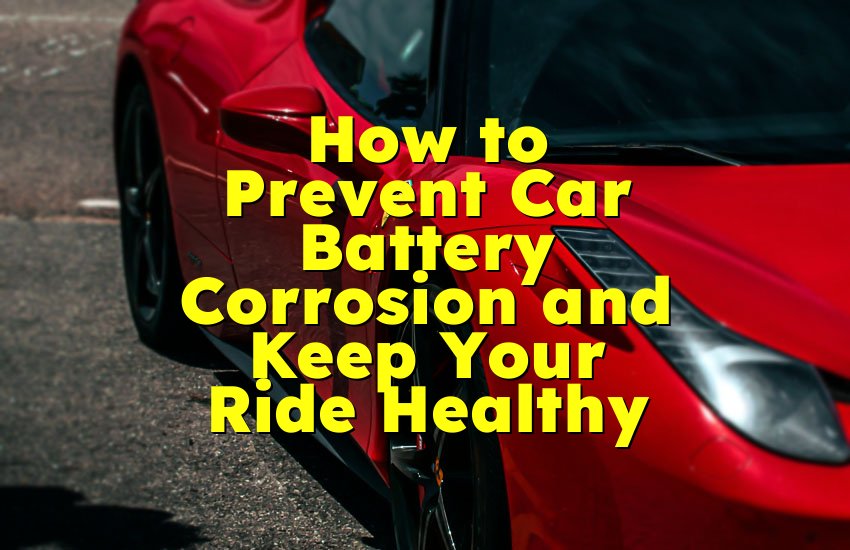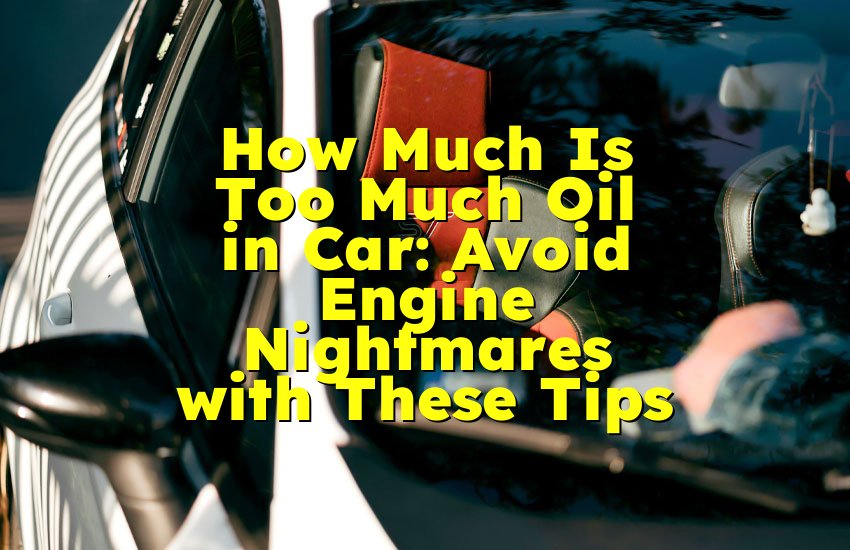As an Amazon Associate, I earn from qualifying purchases at no extra cost to you.
How to Tell if Fuel Pump is Bad – Easy Guide to Fix Your Car Fast
Ever had your car suddenly stall while driving or struggle to start for no reason? That annoying hiccup might be your fuel pump acting up. I remember one morning, my car just refused to roar, and it turned out the fuel pump was the culprit. Spotting a bad fuel pump early can save you from bigger engine problems and pricey repairs. Let's break down exactly how to tell if your fuel pump is bad in a simple, stress-free way.
Key Takeaways: Listen for unusual whining sounds from your tank area, check if your car struggles to start or stalls, observe loss of power during acceleration, test fuel pressure with a gauge, inspect electrical connections and fuses, and watch for sputtering or hesitation while driving. Keep your fuel filter clean and avoid running low on gas to reduce fuel pump stress.
Strange Noises from the Fuel Tank
A failing fuel pump often talks to you through sound. If you hear a loud whining or humming noise from the area around your fuel tank, it's a major clue. Normally, the fuel pump hums quietly, barely noticeable. But when it starts struggling, that soft hum turns into a louder, persistent sound. The noise usually happens when you turn the ignition on or drive at higher speeds.
Sometimes, the pump struggles because the motor is wearing out or the fuel lines are clogged. It's like a strained vacuum cleaner; it still works but not efficiently. To check, sit inside your car with the engine off, turn the key to the "on" position, and listen closely near the fuel tank. If the noise seems abnormal or stronger than usual, it's a warning.
Remember, some cars naturally have a faint humming fuel pump noise, so compare with your usual driving sounds. Pay attention if the noise starts intermittently—it could mean the pump is slowly failing. Acting early can prevent complete breakdown while driving.
- Listen for whining or humming from the fuel tank
- Compare with normal engine sounds
- Noise when ignition is on is a key clue
- Intermittent sounds may indicate slow failure
Car Struggles to Start
One of the most obvious signs of a bad fuel pump is difficulty starting your car. If you notice your car takes longer to crank or doesn't start immediately, your pump might not be delivering enough fuel to the engine. Sometimes, the engine will crank but fail to ignite properly. This can be frustrating, especially during busy mornings.
A simple test is to turn your key and listen to the fuel pump activate. A working pump makes a short humming sound before the engine starts. If you don't hear anything, the pump could be dead or the fuse might be blown. Also, observe if the problem occurs only when the engine is cold or hot. Temperature can affect a weak pump's performance.
Repeatedly trying to start a car with a failing pump can drain your battery, so it's best to diagnose quickly. If your car eventually starts after a few attempts, it's still a warning sign. Early detection helps prevent being stranded on the road.
- Takes longer to crank or start
- Engine may crank but not ignite
- Check for pump humming sound
- Temperature may affect starting
Loss of Power While Driving
Does your car feel weak or laggy when accelerating? A failing fuel pump can't supply enough fuel to meet engine demands, especially when climbing hills or accelerating quickly. You might notice hesitation or jerking as you press the gas pedal. Sometimes, the car feels like it suddenly loses energy for a few seconds.
This happens because the engine starves for fuel. Even if your car is running fine at idle, heavy throttle or high speed can reveal fuel delivery issues. A good way to test is driving on a slight incline or highway. If the engine hesitates or power drops noticeably, the fuel pump could be struggling.
Keep in mind that other issues, like clogged filters or spark problems, can mimic this symptom. Combine this observation with other signs like unusual noises or starting difficulties to confirm the fuel pump is the cause. Acting before a total failure is crucial.
- Hesitation during acceleration
- Power drops under load or uphill
- Engine may jerk or stumble
- Idle may seem normal
Stalling While Driving
Sudden engine stalling is both scary and dangerous. A bad fuel pump often causes the engine to stop randomly while driving because the fuel supply gets interrupted. Unlike running out of gas, this can happen anytime, even when your fuel gauge is full.
Stalling often occurs at lower speeds or during traffic when the engine isn't demanding as much fuel. When the pump struggles to maintain pressure, the engine simply dies. Restarting may work immediately or take several attempts, depending on the severity of the pump's wear.
To test, safely drive in a quiet area and observe if the car stalls intermittently. If combined with other signs like whining noises and loss of power, the problem points strongly to the fuel pump. Ignoring these signs can leave you stranded or cause additional engine damage.
- Engine stops suddenly while driving
- Can happen at any fuel level
- Restarting may be difficult or delayed
- Stalling confirms fuel supply issue
Fuel Pressure Test
A reliable way to check a fuel pump is using a fuel pressure gauge. This tool measures how much pressure the pump delivers to the engine. Check your car manual for the recommended fuel pressure. If the reading is below specs, the pump is likely weak or failing.
Attach the gauge to the fuel rail or test port, turn the key to "on," and observe the pressure. Low pressure means the pump can't supply fuel properly, while fluctuating pressure indicates an inconsistent pump. Make sure to test multiple times, especially during engine cranking and idle.
Fuel filters and clogged lines can also affect readings, so check them too. If the pressure is consistently low despite clean filters, replacing the pump is the best option. Fuel pressure testing gives a clear, factual confirmation rather than just guessing based on symptoms.
- Use a fuel pressure gauge
- Compare reading to manufacturer specs
- Test during cranking and idle
- Low or fluctuating pressure confirms weak pump
Electrical Issues and Fuse Check
Sometimes, a fuel pump problem isn't the pump itself—it's the electrical system. Check the fuel pump fuse and relay first. A blown fuse or faulty relay can prevent the pump from working. Inspect wiring for damage or corrosion, especially near the fuel tank.
Using a multimeter, you can check if the pump is getting voltage. No voltage means the problem is electrical, not mechanical. Also, look for loose connectors or melted wires that could interrupt the current. Fixing electrical issues is often easier than replacing the pump.
Many people replace the pump without checking fuses or relays, wasting time and money. Start with simple electrical diagnostics before diving into costly repairs. Ensuring the pump gets proper power may restore normal fuel delivery instantly.
- Inspect fuse and relay
- Check wiring and connectors
- Use multimeter to test voltage
- Electrical fixes may solve the problem
Final Thoughts
Spotting a bad fuel pump early saves time, money, and frustration. Listen to your car, observe starting behavior, watch for power drops, and perform basic tests. Combining sound, performance, and fuel pressure checks gives a clear picture. Addressing issues promptly prevents bigger engine damage and keeps you safe on the road. A little attention now avoids expensive repairs later.
| Symptom | What to Check | Quick Fix Tip |
|---|---|---|
| Whining noise from tank | Listen with ignition on | Compare with normal hum |
| Car struggles to start | Fuel pump activation | Check fuse or relay |
| Loss of power | Acceleration & incline | Test fuel pressure |
| Engine stalls | Observe while driving | Inspect fuel lines & filter |
| Low fuel pressure | Use gauge | Replace pump if needed |
| Electrical issues | Fuse, relay, wiring | Tighten connections |
| Intermittent starting | Engine temp check | Monitor pump behavior |
| Hesitation during acceleration | Smooth driving test | Combine with other signs |
Frequently Asked Questions (FAQs)
Is it normal for a fuel pump to make noise?
Yes, a quiet hum is normal when the ignition is on, but loud whining or irregular noises mean it's struggling. Listen closely and compare with your usual sounds to catch issues early.
Can a bad fuel pump cause engine stalling?
Absolutely. If the pump can't supply enough fuel, the engine may stop suddenly. This happens even with a full tank and can be dangerous if ignored.
Do I need a professional to test fuel pressure?
Not necessarily. A fuel pressure gauge is affordable and easy to use, but if you're uncomfortable, a mechanic can do a quick test safely and accurately.
Is it safe to drive with a failing fuel pump?
It's risky. Intermittent fuel supply can stall the car unexpectedly. Short trips might be okay, but long drives or highway driving is dangerous.
Can clogged fuel filters mimic pump problems?
Yes, a clogged filter can reduce fuel flow and mimic pump issues. Always check and replace filters before assuming the pump is bad.
Do fuel pump issues affect fuel efficiency?
Yes. A struggling pump can starve the engine, causing it to work harder and use more fuel. Fixing the pump restores normal efficiency.
Is a weak pump repairable or must be replaced?
Usually, a weak pump must be replaced. Internal wear or motor issues can't be repaired reliably, so replacement is the safest option.
Can electrical problems cause the same symptoms as a bad pump?
Yes, blown fuses, faulty relays, or damaged wiring can prevent the pump from working. Always check the electrical system before replacing the pump.











